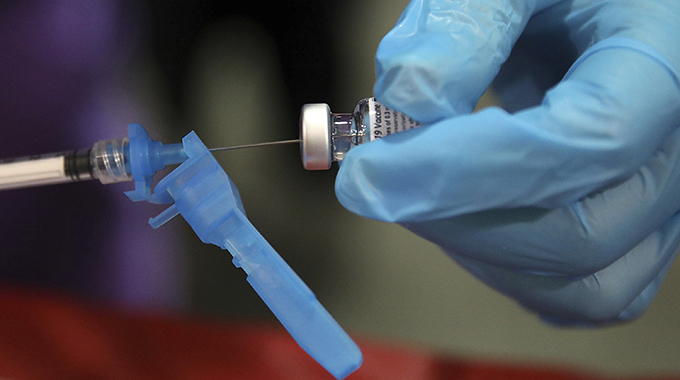Johnson & Johnson’s COVID-19 Vaccine Is 66% Effective Overall, Over 50 Percent on Emerging Variants

- Interim results from Johnson & Johnson phase 3 trials show that its vaccine offers protection against moderate to severe COVID-19.
- The company is expected to seek emergency authorization next month.
- The vaccine may be released as soon as February.
Shawn Radcliffe
Johnson & Johnson said Friday, (Jan. 29), that its single-dose coronavirus vaccine provided strong protection against moderate to severe COVID-19, although it appears to have a lower effectiveness against a new coronavirus variant first identified in South Africa.
Preliminary results released by the company show that the vaccine had an overall effectiveness of 66 percent against moderate to severe disease 28 days after vaccination.
Effectiveness is a measure of how well a vaccine works within the controlled environment of a clinical trial. Real-world effectiveness may be lower.
Effectiveness was similar for all age groups, including those 60 years and older.
However, it varied among regions: 72 percent in the United States, 66 percent in Latin America, and 57 percent in South Africa.
The company said nearly all of the COVID-19 cases in South Africa were due to the coronavirus variant known as B.1.351Trusted Source, which spreads more easily.
The vaccine also had an effectiveness of 85 percent against severe disease in all regions studied 28 days after vaccination.
The effectiveness of the vaccine against severe disease improved over time, with no severe cases seen after 49 days in people who were vaccinated.
In addition, the vaccine offered complete protection against hospitalization and death due to COVID-19 in all regions studied.
Moderate effectiveness still saves lives
Although the overall effectiveness of the Johnson & Johnson vaccine falls below that of the two vaccines already approved for emergency use in the United States — Pfizer-BioNTech and Moderna-NIAID — it still exceeds the 50 percent efficacy threshold set by the Food and Drug Administration (FDA) for coronavirus vaccines.
Angela Rasmussen, PhD, a virologist at the Georgetown University Center for Global Health, Science and Security, said on Twitter that even with the Johnson & Johnson vaccine’s lower effectiveness, it’s still an important development.
“While efficacy varied by region, keeping people out of the hospital everywhere will save lives, which is what this is all about,” she wrote.
Hospitals that are overwhelmed with a surging number of COVID-19 patients have trouble not only taking care of COVID-19 patients, but also providing other urgent and routine care.
It’s difficult to directly compare the vaccines because the Pfizer-BioNTech and Moderna-NIAID clinical trials looked at how well their vaccines prevented any symptomatic coronavirus infection, which also included mild cases.
The Johnson & Johnson study looked only at protection against moderate or severe cases.
Dr. Bruce Y. Lee, executive director of the Public Health Computational and Operations Research (PHICOR) group and professor of health policy and management at CUNY Graduate School of Public Health and Health Policy, said the Johnson & Johnson vaccine has some advantages over the ones already approved.
“With a one-dose vaccine, you would only need to produce and distribute half as many doses, which could alleviate bottlenecks in the supply chain,” he said. “Also, having people return for a second dose is a logistical management challenge.”
The Johnson & Johnson vaccine also has less demanding storage requirements. The company said the vaccine can be stored for up to 2 years in a standard freezer, and at least 3 months in a refrigerator.
Both the Pfizer-BioNTech and Moderna-NIAID vaccines have to be stored in special freezers until they’re thawed just prior to use.- Healthline









Comments